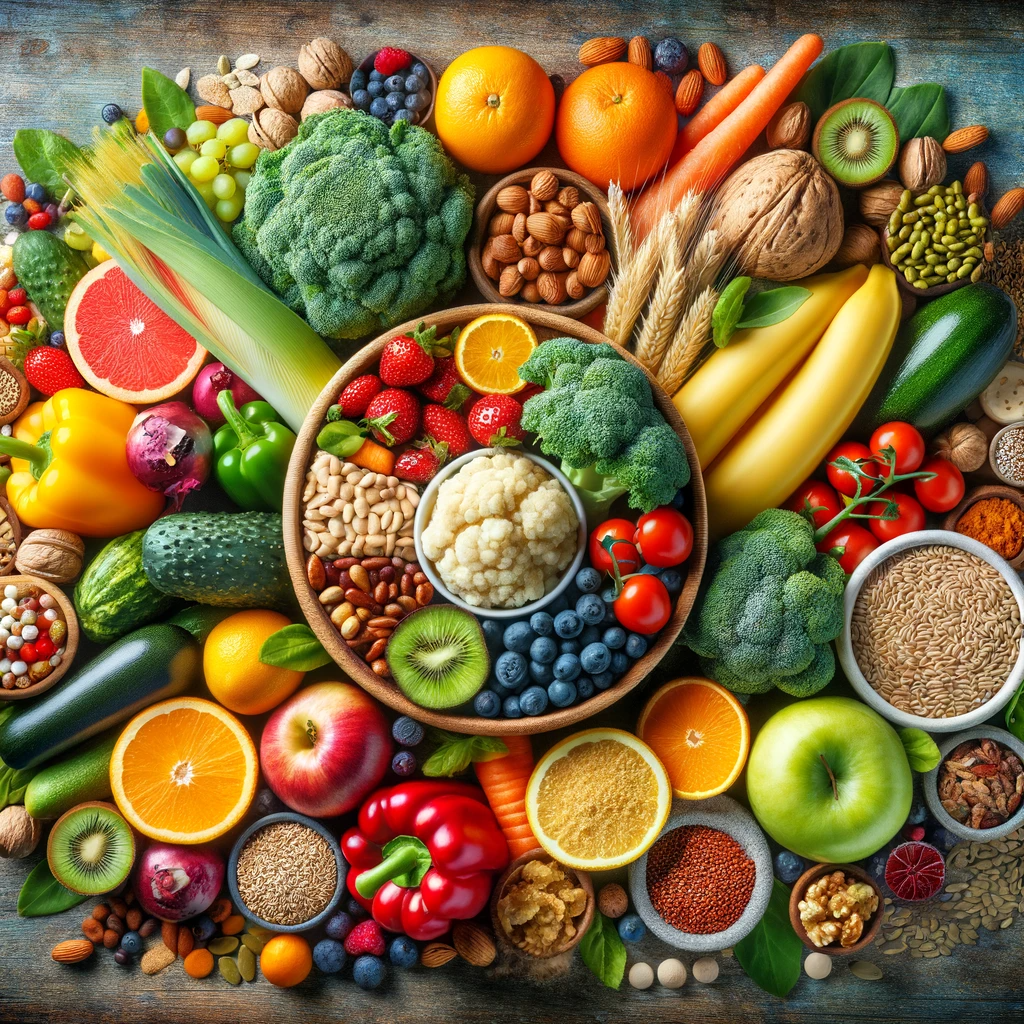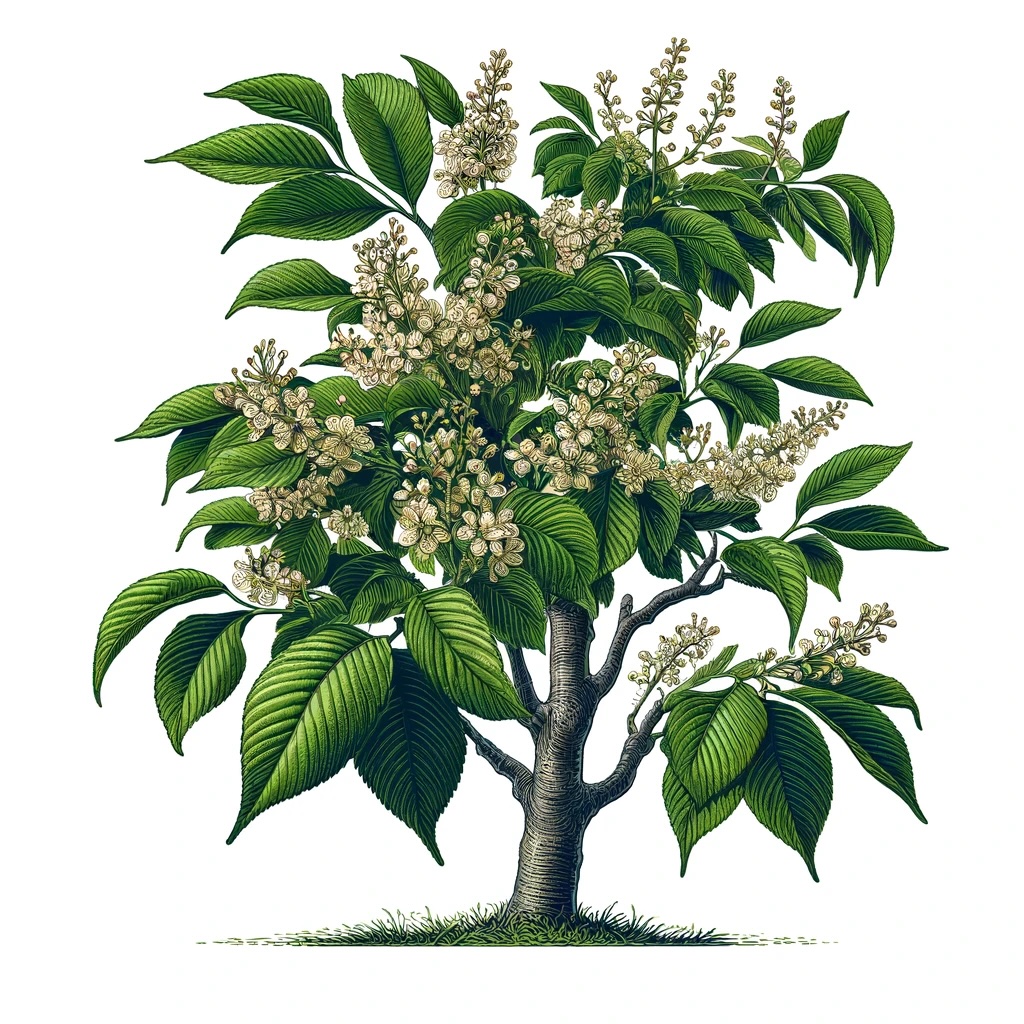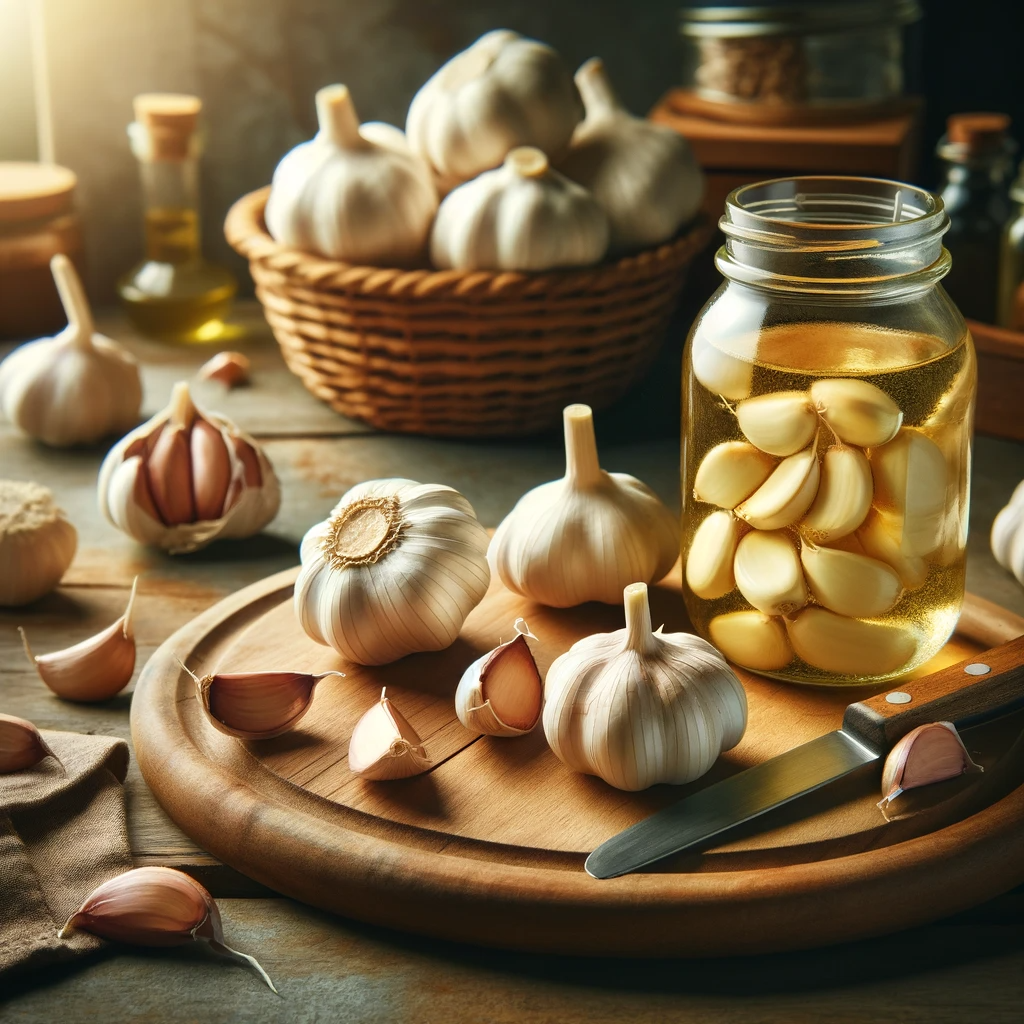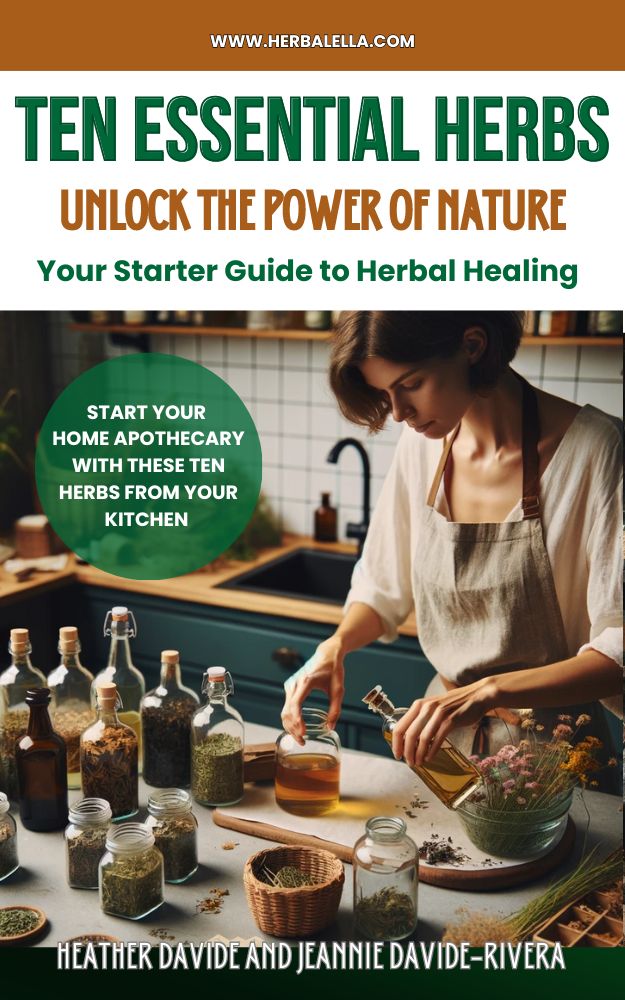This website contains affiliate links for products I use and love. If you take action (i.e. subscribe, make a purchase) after clicking a link, I may earn some tea money, which I promise to drink while creating more helpful content like this.
Food as Medicine Explained: Embracing the Healing Journey

Welcome to the transformative world where your kitchen is not just a place for meals, but a haven for healing and wellness. At Herbal Ella, we've always celebrated the natural power of herbs and home remedies. Today, we extend this celebration to the broader, equally powerful concept of "Food as Medicine."
This ancient idea, deeply rooted in cultures worldwide, recognizes that what we eat profoundly impacts our health and well-being. From the Ayurvedic traditions of India to the holistic approaches of Traditional Chinese Medicine, and even to the herbalists of the West, food has long been used as a tool for healing. It's a testament to the belief that the best pharmacy is the one nature provides – our gardens, fields, and, indeed, our kitchens.
In this corner of Herbal Ella, we delve into how everyday foods can nourish, heal, and balance our bodies. It's about transforming the act of eating into a daily ritual of health and self-care. Here, we'll explore how the simplest ingredients in your pantry can be powerful medicine, how a well-planned meal can be your first line of defense against illness, and how the art of cooking can be a form of therapeutic practice.
Join us on this journey to rediscover the healing power hidden in the foods we consume daily. Let's celebrate the harmony of food and wellness, where every bite is a step towards a healthier, more vibrant you.
The Timeless Wisdom of Food as Medicine
The philosophy of "Food as Medicine" is not a new trend; it's a wisdom passed down through generations, a cornerstone in many traditional healing practices. This ancient knowledge, grounded in the understanding that food can be both nourishing and healing, is more relevant today than ever before.
Historical Roots and Cultural Significance:
- In ancient civilizations, the lines between food, medicine, and magic were often blurred. Herbs and spices were not just flavor enhancers but vital components of health and healing.
- Ayurvedic medicine in India, for example, has always emphasized the medicinal properties of food, advocating for a diet that balances the body's three doshas (energies).
- Similarly, Traditional Chinese Medicine (TCM) uses food therapy, where dietary choices are tailored to individual health needs, seasons, and environmental factors.
Modern Relevance:
- In the modern world, where processed foods are prevalent, returning to these roots has never been more crucial. The rise in chronic diseases and health disorders is a clear indication of the disconnect between our diets and our health.
- By revisiting these ancient practices, we can learn how to use food to not only prevent but also potentially reverse certain health conditions.
Herbal Ella's Approach:
- At Herbal Ella, we believe in the power of nature's bounty, and food is an integral part of that. Our approach combines the ancient wisdom of herbal remedies with the holistic view of food as a key to wellness.
- We advocate for a diet rich in whole, natural foods - where herbs, fruits, vegetables, and grains come together to create not just meals, but healing experiences.
In embracing the "Food as Medicine" philosophy, we are not just eating; we are nourishing our bodies, minds, and souls. It's about making conscious choices in our diet, understanding the healing properties of different foods, and appreciating every meal as an opportunity to enhance our health.
The Science Behind Food as Medicine

- Preventive and Healing Properties: Modern science now echoes what our ancestors practiced — certain foods are not only nutritious but also possess properties that can prevent, alleviate, or even treat health conditions. This is seen in the ability of certain diets to reduce the risk of chronic diseases such as diabetes, heart disease, and cancer.
- Nutrients and Their Roles: Essential nutrients, including vitamins, minerals, proteins, fats, and carbohydrates, play specific roles in supporting bodily functions. For instance, omega-3 fatty acids found in fish are known for their anti-inflammatory properties.
- Antioxidants and Phytochemicals: Foods rich in antioxidants and phytochemicals, like berries and leafy greens, can combat oxidative stress and reduce inflammation, leading to improved health outcomes.
- Gut Health and Microbiome: The emerging research on gut health reveals how a diet rich in fiber from fruits, vegetables, and whole grains supports a healthy gut microbiome, which is vital for immune function, mental health, and more.
Benefits of a 'Food as Medicine' Approach
The 'Food as Medicine' approach offers numerous benefits that extend far beyond basic nutrition. It's an empowering practice that places wellness within reach in the most natural and accessible way.
- Disease Prevention: Many chronic diseases are linked to poor diet and lifestyle choices. By choosing foods rich in nutrients, fiber, and healthy fats, you can significantly reduce the risk of conditions like heart disease, diabetes, and obesity.
- Improved Overall Health: A diet rich in fruits, vegetables, whole grains, and lean proteins can lead to improved energy levels, better digestion, a stronger immune system, and enhanced mental health.
- Natural Healing: Certain foods have specific healing properties; for example, ginger and turmeric possess anti-inflammatory qualities, while foods high in Vitamin C can boost immunity.
- Complement to Traditional Medicine: This approach doesn't replace traditional medicine but rather complements it. It's about using food to enhance the effectiveness of medical treatments, manage symptoms, and support recovery processes.
By integrating the 'Food as Medicine' philosophy into your daily life, you're taking an active role in maintaining and improving your health naturally, potentially reducing the need for certain medications and medical interventions.
Principles of Using Food as Medicine
Adopting a 'Food as Medicine' mindset involves more than just choosing healthy foods; it's about understanding and applying certain principles to get the most out of what you eat.
- Balanced Diet: Ensure your diet includes a variety of foods to get a wide range of essential nutrients. Balance your intake of carbohydrates, proteins, and fats to support your body’s needs.
- Focus on Whole Foods: Prioritize whole, unprocessed foods. These are closer to their natural state and typically more nutrient-rich than their processed counterparts.
- Nutritional Value Over Calories: Consider the nutritional value of foods, not just their calorie content. Nutrient-dense foods provide more health benefits and can be more satisfying.
- Individual Nutritional Needs: Recognize that everyone's nutritional needs are different. Factors like age, gender, health status, and activity level can influence what and how much you should eat.
Embracing these principles can help you make more informed choices about your diet, leading to a healthier and more holistic way of living. It's about creating harmony between what you eat and your overall health goals.
Integrating 'Food as Medicine' into Daily Life
Embracing the 'Food as Medicine' philosophy in everyday life can be simpler and more enjoyable than you might think. Here are some practical tips for incorporating this approach into your daily routine:
- Start with Small Changes: You don't have to overhaul your diet overnight. Begin with small, manageable adjustments, like incorporating a serving of vegetables into every meal or swapping refined grains for whole grains.
- Incorporate Medicinal Foods: Gradually introduce foods known for their healing properties. Add ginger to your tea for its anti-inflammatory effects, or sprinkle turmeric in your curries for its antioxidant benefits.
- Plan Your Meals: Meal planning can help you make conscious food choices, ensuring a well-balanced diet. This also reduces the likelihood of opting for less healthy, convenience foods.
- Listen to Your Body: Pay attention to how different foods affect your health and mood. Your body will often signal what it needs, and what it doesn't respond well to.
Remember, the transition to a 'Food as Medicine' lifestyle is a journey, not a race. It's about making sustainable changes that can be maintained over the long term for lasting health benefits.
Food is more than just fuel for our bodies; it's a powerful tool for improving and maintaining our health. Through the 'Food as Medicine' approach, we can harness the natural healing powers of food to live healthier, more balanced lives. As we continue to explore and share detailed guides and articles under this category, we invite you to join us on this journey of discovery and transformation.
Stay updated and inspired on your 'Food as Medicine' journey with Herbal Ella.
Subscribe to our newsletter for the latest articles, tips, and insights in this category. Share your experiences, successes, and questions about using food as a medicinal tool in our community forum or in the comments below. Your journey is unique, and your insights could be the inspiration someone else needs.
Together, let's celebrate and explore the healing power of food.
The information provided on this website is for educational purposes only, and is not FDA approved. It is not to be considered health advice. Always do your own research and seek the guidance of a qualified healthcare practitioner before working with any herb. Herbal Ella is not liable for any action or inaction you take with the materials and information provided. Read here for more information.
Recent Articles
-
Wild Cherry Monograph: Wild Cherry: Nature's Respiratory Ally
May 02, 24 04:52 PM
Discover the healing potential of Wild Cherry with our comprehensive monograph. Explore its benefits and uses for respiratory health. -
DIY Herbal Remedies for Respiratory Health
May 02, 24 03:46 PM
Explore easy DIY herbal remedies for respiratory health with Herbal Ella. Learn to make teas, tinctures, and more to breathe better naturally -
Understanding the Respiratory System - Anatomy and Functions
May 02, 24 03:23 PM
Discover the respiratory system's anatomy and functions with clear visuals and simple explanations to keep you breathing healthily
* Privacy Policy * Disclaimer *










